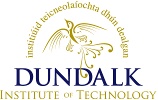Galvin, Lane (2025) Trauma Informed Care in Midwifery. Mixed Methods Evaluation of Trauma-Informed Approach to Care (TIAC) Knowledge and Practices in Midwifery/ Perinatal Settings in Ireland. Masters thesis, Dundalk Institute of Technology.
|
PDF
Download (8MB) |
Abstract
Background / Aim: The potentially adverse impacts of past trauma on the childbearing population are consistently highlighted in the UK and Irish confidential enquires into maternal deaths and long term morbidity (Knight et al. 2022). Knight et al (2022) reported that many post-natal suicides were remarkable in their absence of a pre-existing formal mental health diagnosis, but notable for the presence of a history of prior trauma. Methodology: A sequential mixed methods explanatory study design was utilised which progressed in two phases, the first of which surveyed 197 Irish-based Registered Midwives (RM) using a trauma informed care scale by King et al (2019) to measure their knowledge and practice of trauma informed care. The second phase interviewed 18 RMs, who had self-selected from Phase 1, in five online focus groups. Ethical approval was granted by the DkIT School of Health and Science Research Ethics Committee. Findings: This first phase of the study revealed that very few participants had ever received training on trauma informed care and, the majority of the few that had such training, had sourced it themselves. While objectively measured knowledge of TIC was good, self-appraised knowledge of TIC was poor. Respondents reported TIC to be the exception rather than norm within their practice, and their practice of self-care was poor. Respondents positively welcomed further education related to implementing TIC. Findings from focus groups revealed a fragmented perception of TIC within participants practice areas. Participants acknowledged the potential for all to experience, and the potentially enduring impact of trauma. Participants recognised the importance of compassion, kindness and empathy, and expressed a strong desire to progress the learning and to excel in the provision of trauma informed care. Participants described systemic barriers, and identified continuity, personalised care, and structured pastoral and peer support as key enablers, to the implementation of trauma informed perinatal care. Conclusion: The study illuminates the everyday reality of midwives efforts to provide empathetic, effective, compassionate and individualised care, despite systemic, and sometimes personal, challenges. The findings suggest that enhanced TIC education, and structured trauma informed supports would support midwives in more effectively meeting the challenges encountered in everyday practice, and advancing their expressed desire to provide trauma informed services of excellence. Beyond extending the existing body of knowledge, particularly in an Irish context, the study makes recommendations regarding trauma informed knowledge and practices which have the potential to enhance the perinatal care experience for both ‘cared for’ and ‘carer’.
| Item Type: | Thesis (Masters) |
|---|---|
| Uncontrolled Keywords: | Trauma; Care; Midwifery |
| Subjects: | Science |
| Research Centres: | UNSPECIFIED |
| Depositing User: | Sean McGreal |
| Date Deposited: | 02 Oct 2025 08:21 |
| Last Modified: | 02 Oct 2025 08:21 |
| License: | Creative Commons: Attribution-Noncommercial-Share Alike 4.0 |
| URI: | https://eprints.dkit.ie/id/eprint/943 |
Actions (login required)
 |
View Item |
Downloads
Downloads per month over past year

